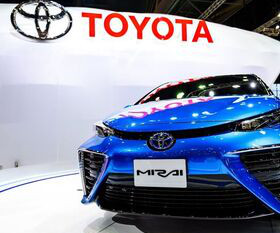EIA: US energy-related CO2 emissions down 2.4% in 2011 while GDP rose
Green Car Congress
AUGUST 14, 2012
The US Energy Information Administration (EIA) reported that after an increase in 2010 of 3.3%, energy-related carbon dioxide emissions in the US in 2011 decreased by 2.4% (136 million metric tons), while GDP grew by 1.8%. Emissions in 2011 were 526 million metric tons (9%) below the 2005 level. mpg) from 2010 to 2011.



































Let's personalize your content